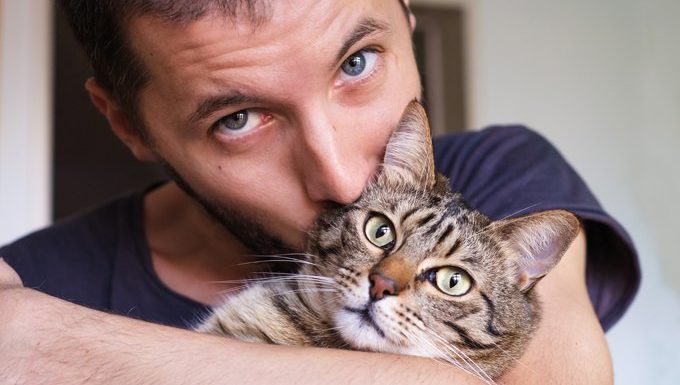Lots of us adopt cats because we want an independent companion who can entertain themselves while we’re away at work.
It’s true that cats can be self-sufficient in many ways, but the sometimes surprising reality is they need us to give them companionship and love, as well as to help them learn to navigate the empty hours when we’re gone.
Cats in the wild don’t have this problem. They’re busy throughout the day stalking, eating, sleeping, and then repeating the whole process multiple times.
But our domesticated cats who live indoors can become lonely and frustrated when no one is around and there’s nothing to do. It’s not unusual for them to develop a problem more often associated with dogs — separation anxiety.
Yes, you heard it here first; cats can get separation anxiety. Any cat can develop it, but it’s most common in kittens who were orphaned at an early age or separated from their mothers too early.
Stress and grief can also be factors. For instance, cats who lose a pet parent to death or divorce may develop signs of the problem. Here’s what you should know.
How To Tell If Your Cat Has Separation Anxiety

Your cat follows you everywhere. When you leave, they sulk, cry, wander, seem depressed, or won’t eat.
It gets worse.
Cats with separation anxiety may express their dissatisfaction by eliminating outside the litter box, spraying urine on your bed or clothing, throwing up, grooming so compulsively that they develop bald spots, or scratching furniture or other objects.
All of those behaviors are the cat’s way of saying, “I’m lonely, I’m bored, I’m scared, and doing these things helps me feel better.”
What these behaviors are not is revenge for your absence. Cats are sophisticated and smart, but they’re not capable of that kind of emotional leap.
So tuck away the urge to punish your cat for their destructive behavior and take steps to help them feel more comfortable when you’re gone.
More Stimulation, Less Loneliness & Boredom
One way to calm your cat and reduce the loneliness and boredom while you’re away is to enrich your cat’s environment. That’s behaviorist-speak for making your house more interesting and fun for a cat.
Here are some tips:
- Get some puzzle toys that will allow them to focus on “hunting” for meals instead of on your absence. Load them with a daily ration of food, and let your cat spend the day figuring out how to release it from the toy.
- Set up a tall cat tree with a view. The height — ideally, up to the ceiling — gives them a chance to do some real climbing, and birds and squirrels outdoors will give them something interesting to look at.
- Don’t have any wildlife? Leave the TV tuned to a nature channel or Animal Planet, or pop a wildlife DVD into the player while you’re gone. You can find some that are made just for cats. YouTube is full of videos for your cats!
- Give your cat more attention and playtime when you’re home. However, wait to do so until you’ve been home for a few minutes. You don’t want them to be anxiously awaiting your return.
For severe cases, your cat’s vet may prescribe an antidepressant to help, but it won’t solve the problem alone. You still have to help your cat train some of the anxiety away.
Does your kitty have separation anxiety? What are your tips for keeping a cat happy while they’re home alone? Let us know in the comments below!
Click the bold links in the article to shop and support our content!









